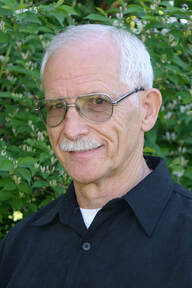 We at Thrive! are focused on building relationships and community, and we take a long-term approach to reducing poverty. We recognize, however, that individuals living at or near the poverty line often have immediate needs. Food is one of those. Milo Kelley, Thrive! board president, recently published the following as a letter to the editor of the Manhattan Mercury. Milo works hard to connect those in need with resources through Thrive! and other organizations. We invite you to share this letter with your friends and neighbors and to get them involved in efforts to help those in need. The letter as published in the March 21 edition of the Manhattan Mercury: People in poverty experience a range of difficulties. This is true anywhere in the world, including here in the U.S. and Manhattan. Those in or near poverty in Manhattan struggle with stable and affordable housing, transportation, health care, and even food. The Safe and Affordable Housing Action (S.A.H.A.) group is working on housing along with several other agencies and groups. Others, including ATA Bus, are working to address transportation concerns. A number of health care agencies and providers are giving great care to many. A substantial network is also working to provide food to those with insufficient resources. Those in the business of providing meals to families are not often recognized. The network is quite varied and broad and includes caring individuals and families, nonprofits, local businesses, national chains, and local, state, and federal government agencies. National corporations provide food to some in Manhattan via the Harvesters program, which distributes food at different locations each week in Manhattan, with one specifically targeted at K-State students. Volunteer groups help by sorting and loading the items. The Breadbasket is probably the most well-known provider of food to those needing assistance. They require proof of need but have multiple food pantry locations. Volunteers work at the main site and satellite pantries. Local businesses donate a substantial amount of food to the Breadbasket daily. A number of churches and the Riley County Senior Center (RCSC) work together through the Common Table to provide a daily evening dinner for those able to travel to their location. Breakfast is also provided several mornings per week. Volunteers prepare and serve the meals. Other groups routinely provide a meal to community members. USD 383 provides free and reduced lunches and breakfasts for many students. Thrive! provides a dinner meal, hosted by community groups, to those involved in their poverty reduction program. Other small groups do the same. The Commodity Supplemental Food Program (CSFP), sponsored by the RCSC, is a government program providing monthly food boxes to qualified individuals and families. Others provide Thanksgiving and Christmas dinners. Thank you to each and every volunteer, donor, and group doing this excellent work! Despite the kindness and generosity in Manhattan, some still struggle with food insecurity. Please consider joining our network either as a donor or volunteer to ensure every person can meet their dietary needs. To donate or volunteer you can contact any local church, the Flinthills Volunteer Center 785-776-7787, the Breadbasket 785-537-0730, or Harvesters 785-861-7700. Manhattan can do more to provide stable and adequate housing, transportation, and health care. A unity of effort can ensure that everyone has adequate and stable housing, easily accessible and affordable transportation, sufficient heath care, and adequate and stable food sources. My vision is for everyone in Manhattan to feel safe and cared for, to feel that they belong, and to have sufficient resources. Milo E. Kelley [email protected]
0 Comments
Have you heard about the misery index that measures the impact of changing economic conditions on people?
Created in the 1960s, the misery index is a combination of housing prices, the consumer price index, and the unemployment rate. Together, these factors are intended to measure the level of economic misery people are experiencing in different geographic areas. Wichita State University released the 2018 misery index for Kansas in early March, and according to their calculations economic misery in Kansas has decreased from 2018 and is well below the misery felt by the rest of the country (for more information, visit kansaseconomy.org/local-indices/misery-index). But consider how people who struggle with less-than-a-living-hourly-wage might feel when economists declare that they should be feeling less miserable. In Manhattan, the living wage calculated by MIT is $12.40/hour, but the minimum wage is $7.25/hour. It can feel pretty miserable to live in this gap. Thrive! is not only with people who live in this gap, but is with people who set a goal to live beyond the misery. Join us! Every other month, Thrive! provides training for volunteers who want to work with people who live in poverty. The next six-hour training is scheduled for Saturday, April 27 (9:00 a.m. to 3:00 p.m.; light lunch provided) and equips volunteers to become Thrive! allies. Allies are asked to volunteer for 12 months to be purposeful friends of people who want to move beyond financial and relationship instability. For more information, contact: Elaine Johannes, Thrive! Ally Coordinator, at 785-410-2249 or [email protected]. |
To follow this blog, use your RSS Feed Reader and search: thriveflinthills.com/2/feed
|
 RSS Feed
RSS Feed

